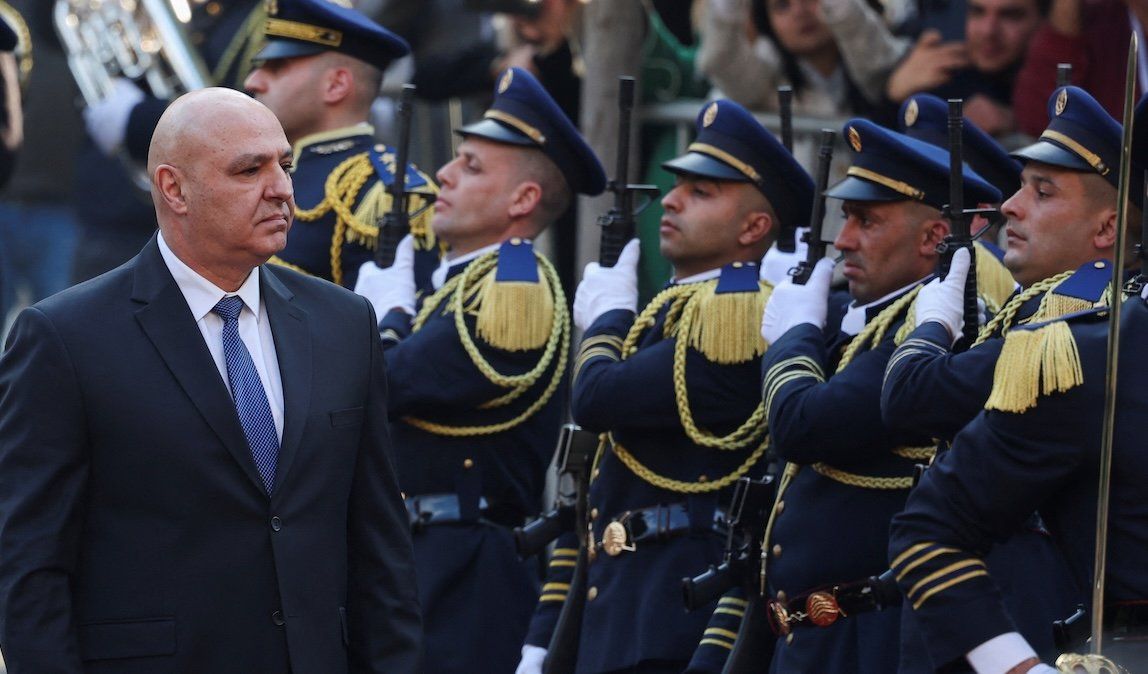Lebanon's army chief Joseph Aoun walks past guards at the parliament building in Beirut, Lebanon, on Jan. 9, 2025.
For the first time in two years, Lebanon has a president. It took two rounds of voting, but in the end, the country’s parliament tapped army chief Joseph Aoun.
Who is he? The 60-year-old career soldier has headed the army since 2017. He shrewdly kept his troops out of the recent and devastating 14-month war between Israel and Hezbollah, the country’s most powerful armed group.
Aoun is a Maronite Christian, a requirement for the presidency in the delicate power-sharing arrangement between Lebanon’s Christian, Sunni, and Shia communities.
Among the candidates vying for the job, Aoun enjoyed strong support from the US and from Saudi Arabia, two key external power brokers.
His selection suggests Hezbollah, badly weakened by the war with Israel and unable to win support for its own preferred candidate, has lost some of its clout.
A tough job. With Lebanon mired in the worst economic crisis in its history, Aoun must name a prime minister capable of carrying out the difficult reforms that are necessary to unlock funding from external donors and creditors. He must also oversee and work to extend the 60-day ceasefire between Israel and Hezbollah, which expires on Jan. 27.
